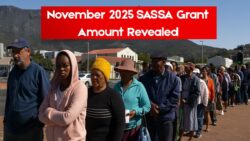Why CBAM Matters for the Global South
Panelists stressed that CBAM’s effects will vary by sector (steel, cement, aluminium, fertilizers, electricity, hydrogen), by export destination, and by the number of jurisdictions that adopt similar border measures. Crucially, outcomes hinge on the domestic carbon price (if any) and on how revenues are used to support an equitable, just transition.

Key Takeaways from the Panel
- CBAM is here to stay: The EU system isn’t perfect, but it’s a global learning ground—for Brussels, partner governments, and businesses adapting supply chains.
- Price carbon at home: Introducing or strengthening domestic carbon pricing (including converting existing fuel excises) can help keep CBAM-related proceeds in-country and fund national transition plans.
- Recycle revenues into decarbonisation: A meaningful share of carbon receipts should accelerate power-sector reform and clean-energy deployment. High fossil-fuel dependence increases risk and financing costs across domestic portfolios.
- Business voice is essential: Structured engagement with industry improves policy design and implementation buy-in—standard practice in many Northern economies and vital for the Global South.
Implications for Policy and Industry
For exporters, near-term priorities include carbon data readiness, product-level emissions accounting, and supply-chain decarbonisation. Governments should align carbon pricing, industrial policy, and trade diplomacy, while mobilising concessional finance to protect jobs and competitiveness. Financial institutions, meanwhile, must integrate transition risk into credit and investment decisions.
GCET25: Collaboration in Action
Hosted by Stellenbosch Business School at STIAS, the conference highlighted practical pathways for just energy transitions. The panel’s pragmatic lens—combining fiscal design, trade law, and industry realities—captured the spirit of GCET: evidence-based policy that delivers climate impact and economic inclusion.
Closing Note
Thanks were extended to the organisers—Stellenbosch Business School and Prof Lee-Ann Steenkamp—and to sponsors including EY. With momentum building, the community now looks to the 2026 edition of GCET to measure progress on CBAM readiness, fair carbon pricing, and resilient green growth across developing economies.




